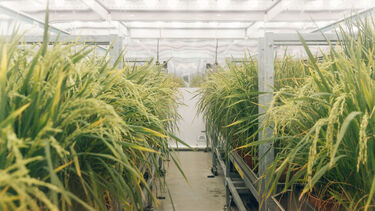This groundbreaking research will focus on Lateral Gene Transfer (LGT), where plants acquire useful genes directly from other species. LGT could potentially bypass the slow process of random mutation and natural selection to adapt more quickly to environmental pressures.
While it’s been long understood that evolution happens through the gradual accumulation of random mutations, this research aims to understand a more dynamic process. LGT is the direct movement of genetic material between organisms without sexual reproduction. Though well-known in bacteria - where it can spread traits like antibiotic resistance - its role in plants is only now being fully explored.
The £950,000 Natural Environment Research Council (NERC) funded project, led by Dr. Luke Dunning, will use grasses as a model system to understand LGT in a natural setting. Previous research by Dr Luke Dunning has proven that LGT is widespread in grasses and they are also of great ecological and economical importance including crops such as wheat and maize.
This project will have significant implications for global food and agriculture challenges. By understanding "natural genetic engineering" we aim to provide a new framework for how plants naturally adapt to a rapidly changing climate and inform the creation of more resilient crops.
Dr Luke Dunning
The research team that includes scientists from the University of Sheffield and Bangor University will aim to answer three fundamental questions:
- How does it happen? The team will test the hypothesis that LGT in grasses is driven by reproductive contamination - where DNA from a third-party is introduced during sexual reproduction.
- How often does it occur? The researchers will quantify the background rate of LGT in a natural grassland to determine its true significance in driving rapid adaptation.
- Where do the genes go? The study will investigate whether foreign genes are inserted into specific, non-random locations in the recipient plant’s genome, a crucial factor for their successful integration and function.
Dr Luke Dunning is also part of a team lead by Dr Alex Twyford at the University of Edinburgh that are researching LGT more broadly in flowering plants, increasing the knowledge and understanding of the process across a wider range of plants - both NERC funded projects will push the frontiers of environmental research.

